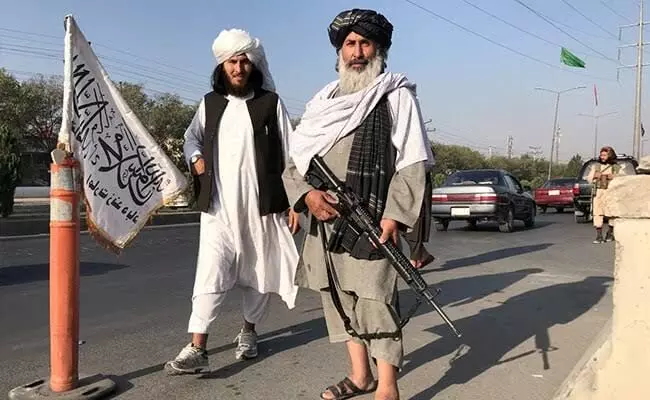
Bin Laden's son met Taliban in October: UN report
text_fieldsKabul: A new report from the United Nations Security Council has claimed that Afghanistan is fast becoming a refuge for terror groups who enjoy greater freedom a nd influence in the region under the Taliban. The report also alleged that the son of slain terrorist Osama bin Laden went to Afghanistan and held meetings with the Taliban in October 2021.
The 29th report of the Analytical Support and Sanctions Monitoring Team of the United Nations Security Council states that foreign terror groups ranging from al-Qaeda in the Indian Subcontinent (AQIS) to the Islamic Movement of Uzbekistan (IMU) enjoy more freedom in Afghanistan than in recent years.
"The security landscape in Afghanistan changed dramatically on 15 August, when the Taliban took control of the country. There are no recent signs that the Taliban has taken steps to limit the activities of foreign terrorist fighters in the country," the report said. It also claimed that while Al Qaeda lacked the means to conduct international operations, it was maintaining a "strategic silence" that would allow the Taliban to gain legitimate power as a government.
Al Qaeda has not commented on the situation in Afghanistan other than to congratulate the Taliban for their assuming the government after the coup in September which overthrew President Ashraf Ghani.
The UN's report estimates between 200 to 400 al-Qaeda fighters to be present in the Indian subcontinent, mainly from Afghanistan, Bangladesh, India, Myanmar, and Pakistan.
Amin Muhammad ul-Haq Saam Khan, who coordinated security for slain al-Qaeda chief Osama Bin Laden, also returned to his home in Afghanistan in late August. AQIS, which is led by Osama Mehmood and his deputy Atif Yahya Ghouri, "retains a presence in Afghanistan, in the Provinces of Ghazni, Helmand, Kandahar, Nimruz, Paktika and Zabul, where the group fought alongside the Taliban" against the ousted government of Ashraf Ghani, the report claimed.
Another Security Council report published in January asserted that the Taliban had been systematically killing officials affiliated to the previous government. UN Secretary General Antonio Gutierrez told a UN meeting that over "two-thirds" of the dead were murdered extra-judicially by the Taliban or their allies, a claim which the Taliban had denied.
"Despite announcements of general amnesties for former members of the Government, security forces and those who worked with international military forces, [the United Nations Assistance Mission in Afghanistan] UNAMA continued to receive credible allegations of killings, enforced disappearances, and other violations" against former government and coalition members, the report said.
However, the recent Security Council report concluded that the Taliban have acted to rein in the anti-China terror group Turkistan Islamic Party (TIP), also known as Eastern Turkistan Islamic Movement (ETIM).
It also estimates that the strength of the ISIS affiliate branch in Afghanistan, Islamic State of Khorasan (IS-K) has risen from 2200 to 4000 after the release of prisoners, and that IS-K, which opposes the Taliban, had the capacity to conduct "high-profile and complex" attacks. The outfit has already been involved in several suicide bombings in the country, and controls small parts of the eastern provinces in Afghanistan.
"The group aims to position itself as the chief rejectionist force in Afghanistan, with a wider regional agenda threatening neighbouring Central and South Asian countries," the report adds.










